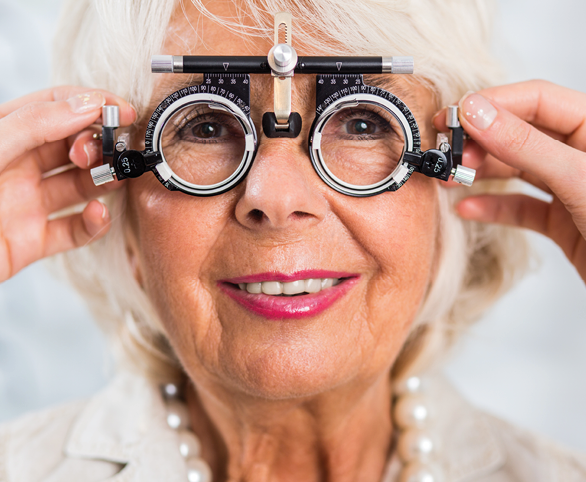
There are a number of conditions that become more likely and common as we get older, and one of these is vision loss. Vision issues tend to become more common and significant with age, but there are also ways to prepare for and even prevent certain forms of vision loss with the right approaches.
At Avamere at Mountain Ridge, we’re proud to offer care for a variety of medical conditions as part of our assisted living community, and we’ve assisted many of our guests who have vision issues in the past. If you’re a senior or caregiver looking to manage or even prevent certain vision loss issues, here’s a brief primer on the signs to watch out for, the risks of vision changes, and some basic ways to protect the eyes.
Signs and Symptoms of Senior Vision Loss
Here are some of the common signs or symptoms of vision loss that may be present in some seniors:
- Cloudy or tunnel vision
- Straining to read small printed words
- Excessive tearing in the eyes
- Sudden changes in eyeglass prescriptions
- Problems with night vision
- Blurred vision
Any sudden change in vision, whether temporary or permanent, warrants a visit to the eye doctor. This is for several reasons, including the fact that vision loss among older adults may speak to certain related conditions that are taking place. More on this below.
Connection to Other Issues
In some cases, vision changes or losses can be warning signs that strokes or other neurological issues are possible. Here are a few examples:
- If vision is lost in one or both eyes extremely abruptly, this could be a negative sign
- If double or blurry vision comes on suddenly
- Rapid or uncontrolled eye movement
- Sudden sharp pain in or behind one or both eyes
If any of these events takes place for you or a senior loved one, call 911 right away.
Eye Protection Methods
While certain elements of vision loss are simply natural and can’t be entirely prevented, there are also some steps you can take to protect your eyes as you get older – and in many cases, these will limit or ward off the risks of vision loss for at least a few years, if not longer. Some basic tips:
- Wear sunglasses regularly: This is for a number of reasons, but one of the most significant is that it keeps harmful UV light from the sun from damaging the eye tissue directly. In fact, some recent studies have suggested that sunglasses can be as protective as sunscreen for the eyes.
- Eat properly: Diet plays a major role in overall eye health, so make sure to include plenty of omega-3 fatty acids, antioxidants, and other nutrients that support the eyes.
- Routine eye examinations: Especially if the senior in question has any personal or family history of vision loss, it’s important to get regular checkups from an eye doctor. This will help to detect any potential problems early on.
For more on identifying and managing vision loss issues in seniors, or to learn about any of our assisted living or memory care community programs, speak to the caring staff with Avamere at Mountain Ridge today.
